Ministry of Defense Hosts Press Tour at Otar Military Base
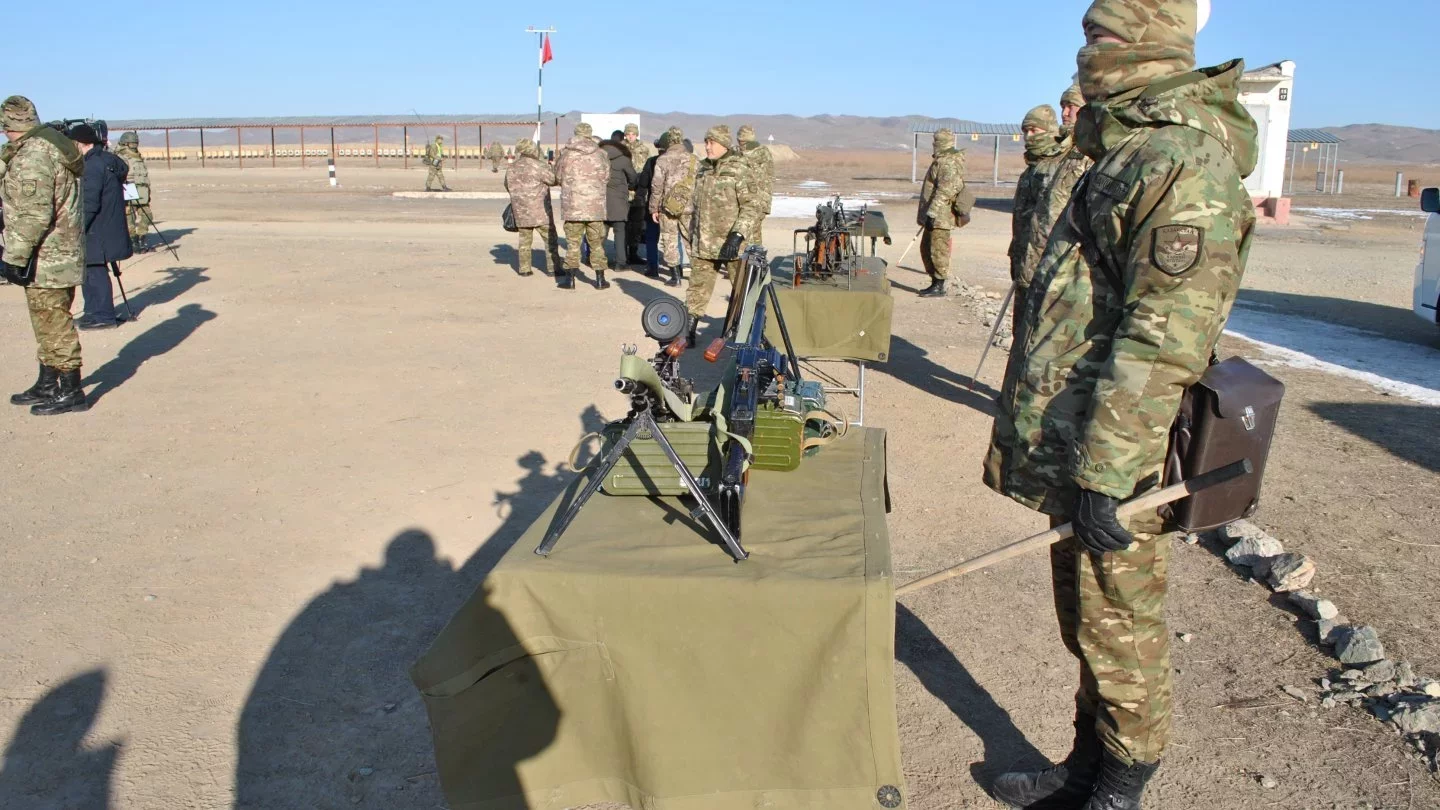 Photo: Orda.kz
Photo: Orda.kz
Accompanied by a group of journalists and parents of servicemen, Commander-in-Chief of the Ground Forces Mereke Kuchekbayev visited military units in the Otar rural district.
The trip aimed to demonstrate what Kazakhstan's army aspires to be at its best. Orda.kz has put together a report on it.
A Grand Start, But the Usual Hiccups
The press tour was ambitious, with promises of a flight on Kazakhstan’s newest military transport aircraft, the Airbus A400M, helicopter rides, and live-fire exercises. However, Defense Ministry plans kept shifting.
Lousy weather in Almaty prevented the military airfield from receiving the transport plane, delaying the flight until late evening.
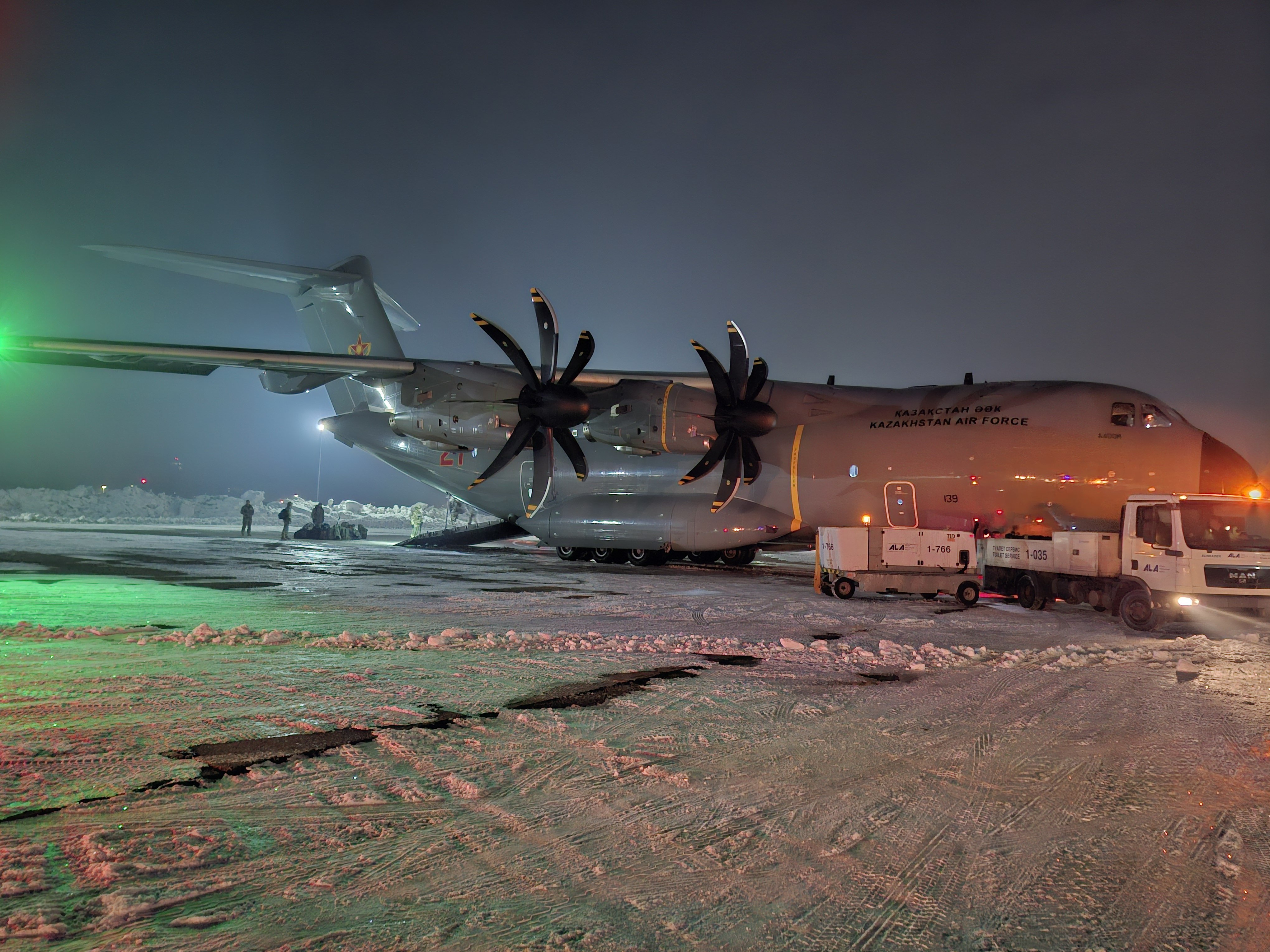
Flying on a military transport aircraft is a thrilling experience even for seasoned travelers, especially when it’s the Airbus A400M.
With a 37-ton payload capacity, a wingspan of 42.4 meters, and a length of over 45 meters, this turboprop aircraft joined Kazakhstan’s Air Force in December 2024.
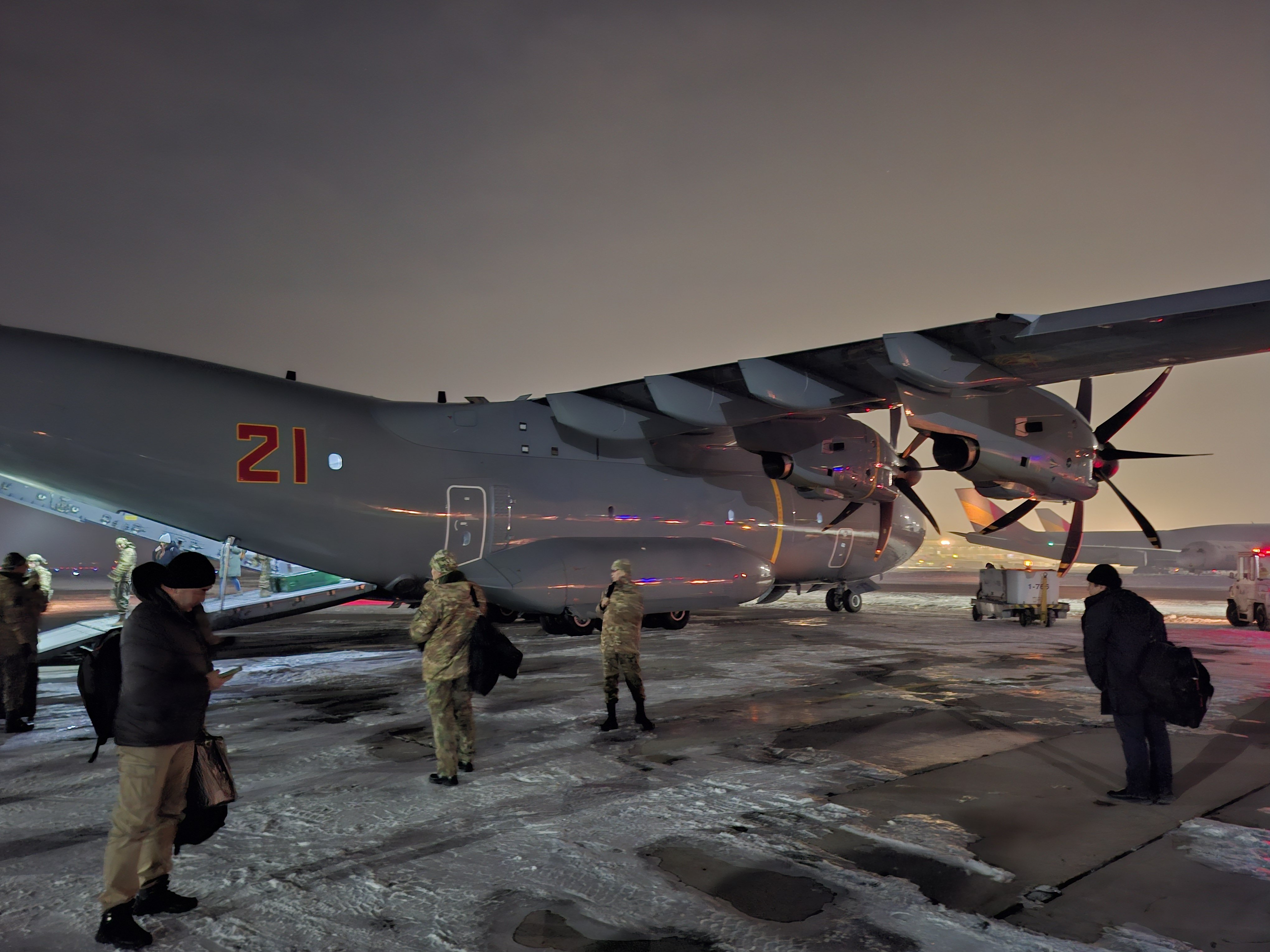
The aircraft features state-of-the-art avionics and an extended flight range.
Designed for troop transport, equipment deployment, and humanitarian missions, it can land in nearly any condition, including dirt runways, making it one of the most advanced aircraft in its class.
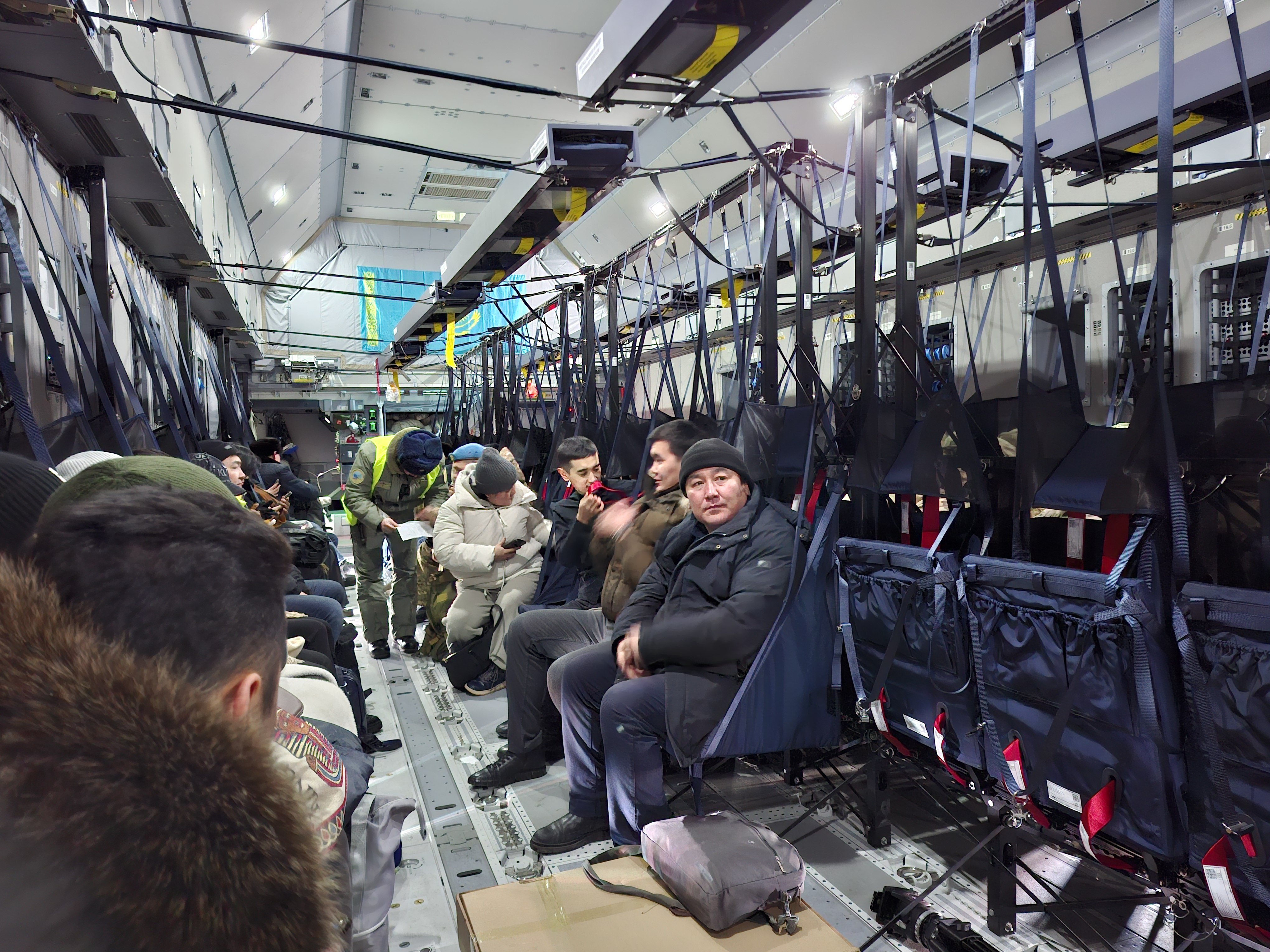
The Aircraft can be quickly adapted to carry large cargo or passengers by installing additional seating racks inside. While it appears massive on the ground, it is remarkably agile, taking off and landing with impressive smoothness.
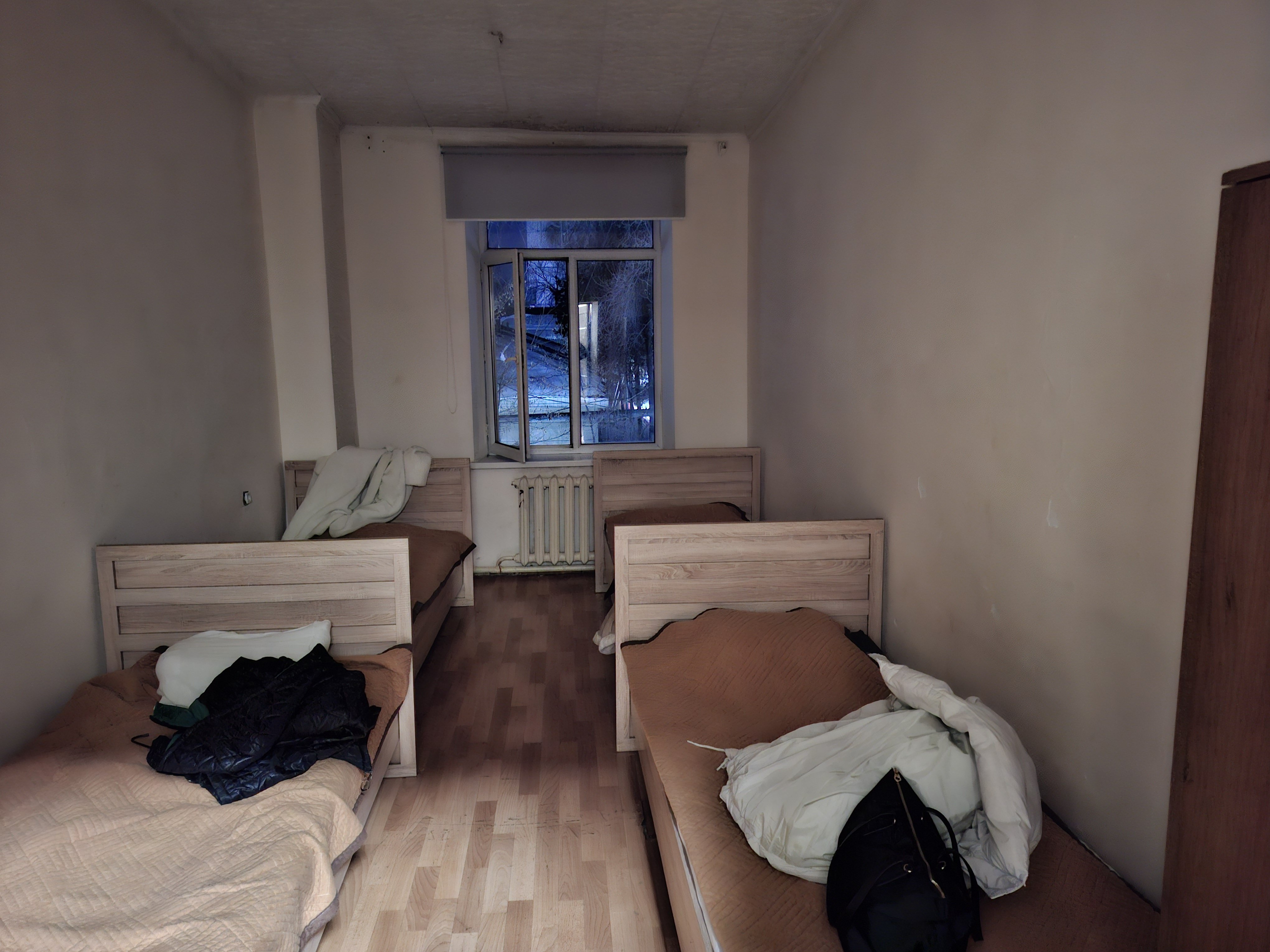
Despite the smooth and comfortable flight, the overnight stay in Almaty was a stark contrast.
The delegation was housed in a no-frills dormitory already occupied by a sports team, offering an authentic taste of barracks life.
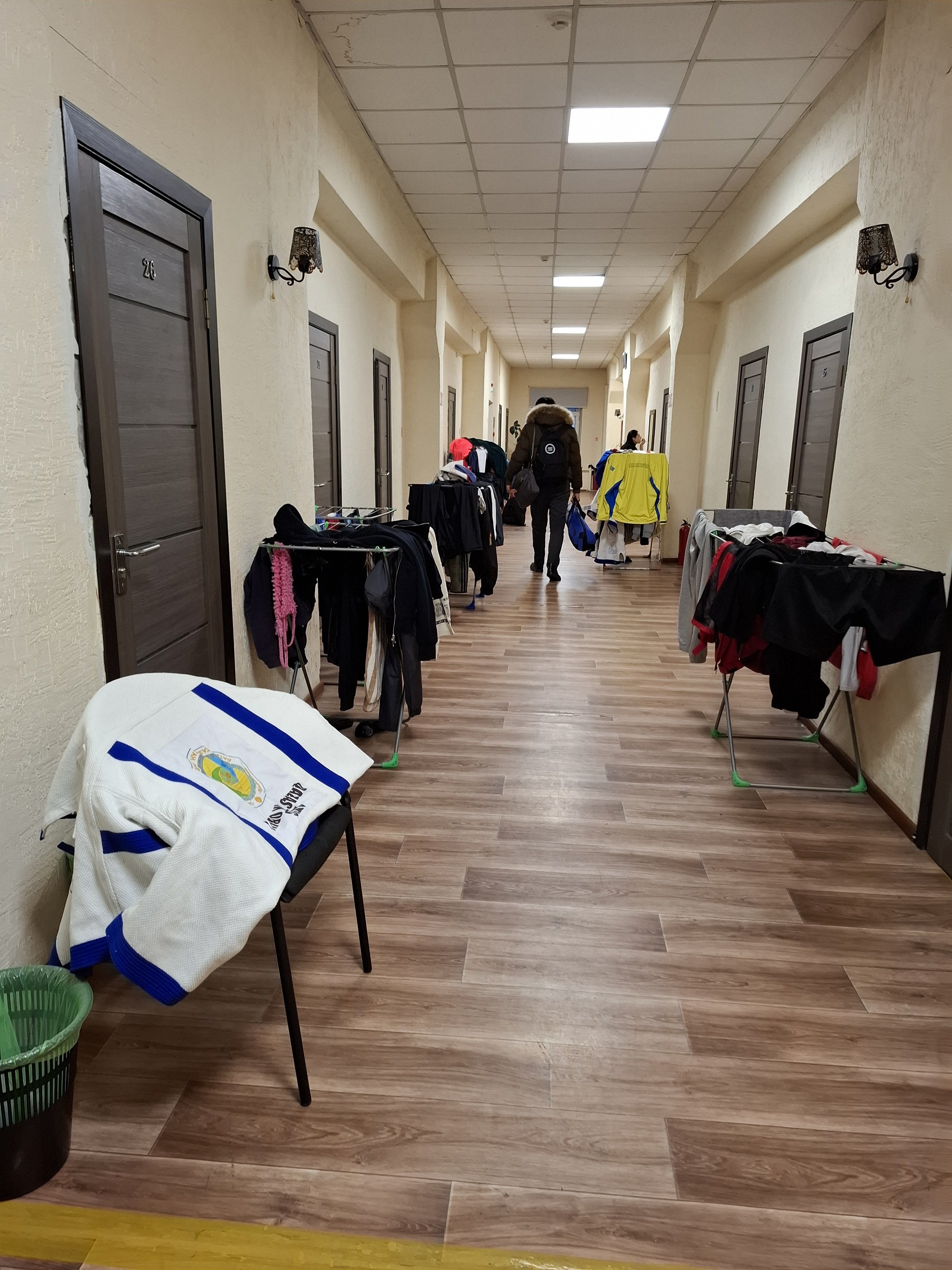
At dawn, a classic soldier’s breakfast awaited everybody at The Sagadat Nurmagambetov Military Institute of the Kazakh Ground Forces (formerly known as the Alma-Ata Higher Combined Arms Command School).
A Harsh Welcome
After breakfast, the press tour team was taken to a small airfield near the 70th junction, where two Mi-17 helicopters awaited. The delegation members, 15 people each, were placed in them.
Boarding with engines running was an experience — the rotor blades whipped up powerful gusts of wind, and snow pelted exposed skin like needles. Everyone got an unintended "extreme rejuvenating peeling treatment" on their way to the Matybulak training ground in the Otar rural district.
Upon arrival, the tour started on a promising note.
Twenty different training stations had been set up to showcase the army’s capabilities, including target practice, field kitchens, grenade launcher exercises, and tank and artillery drills.




The event started with an emotional moment — several parents were reunited with conscript soldiers who had excelled in training.
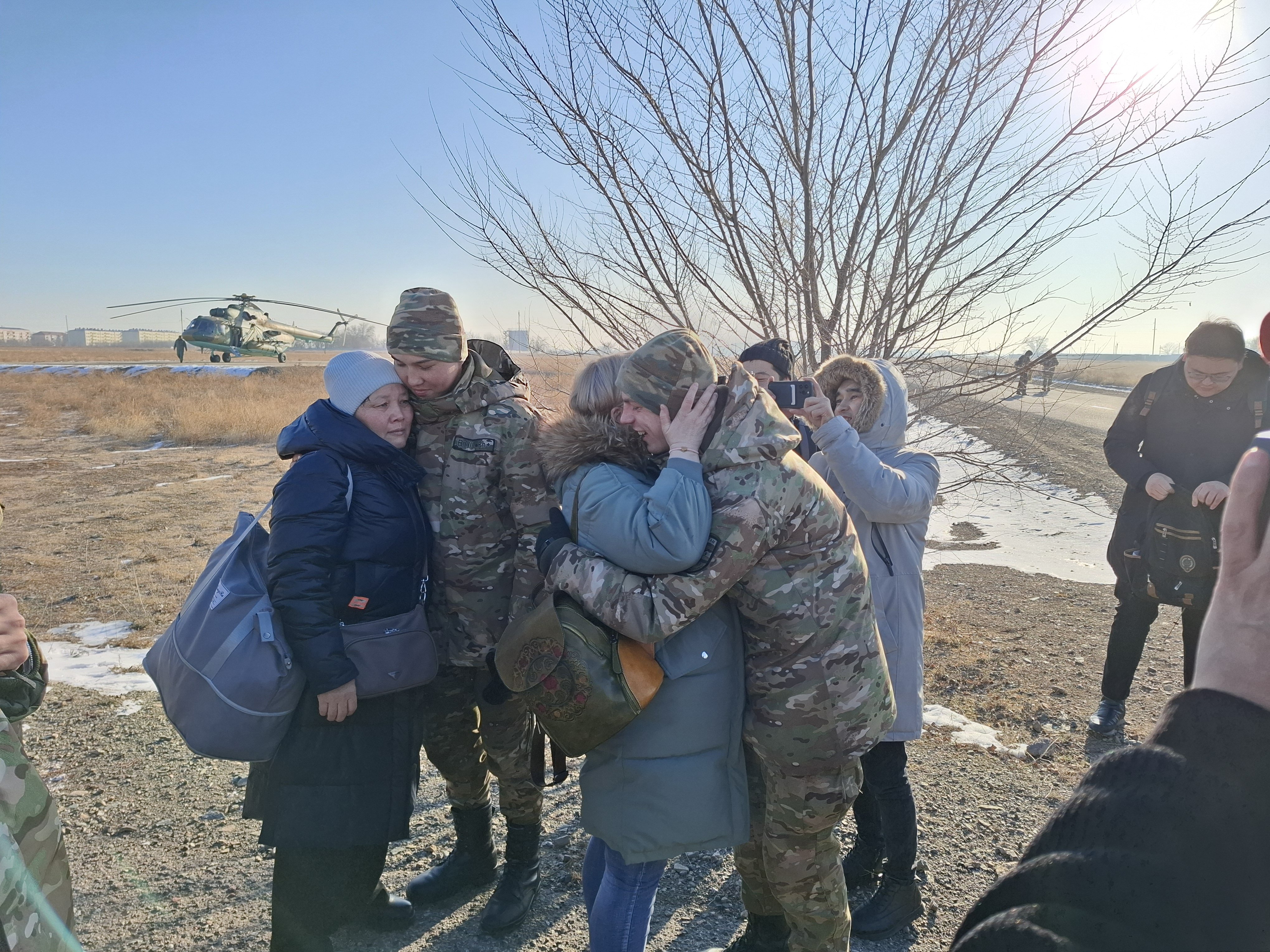
Meanwhile, an impressive display of small arms used by the Guard's garrison was neatly arranged for viewing. Yet, all eyes were on the families in a heartfelt reunion.
The journalists were given an inside look at how soldiers are trained to shoot and instructed on firearm safety.
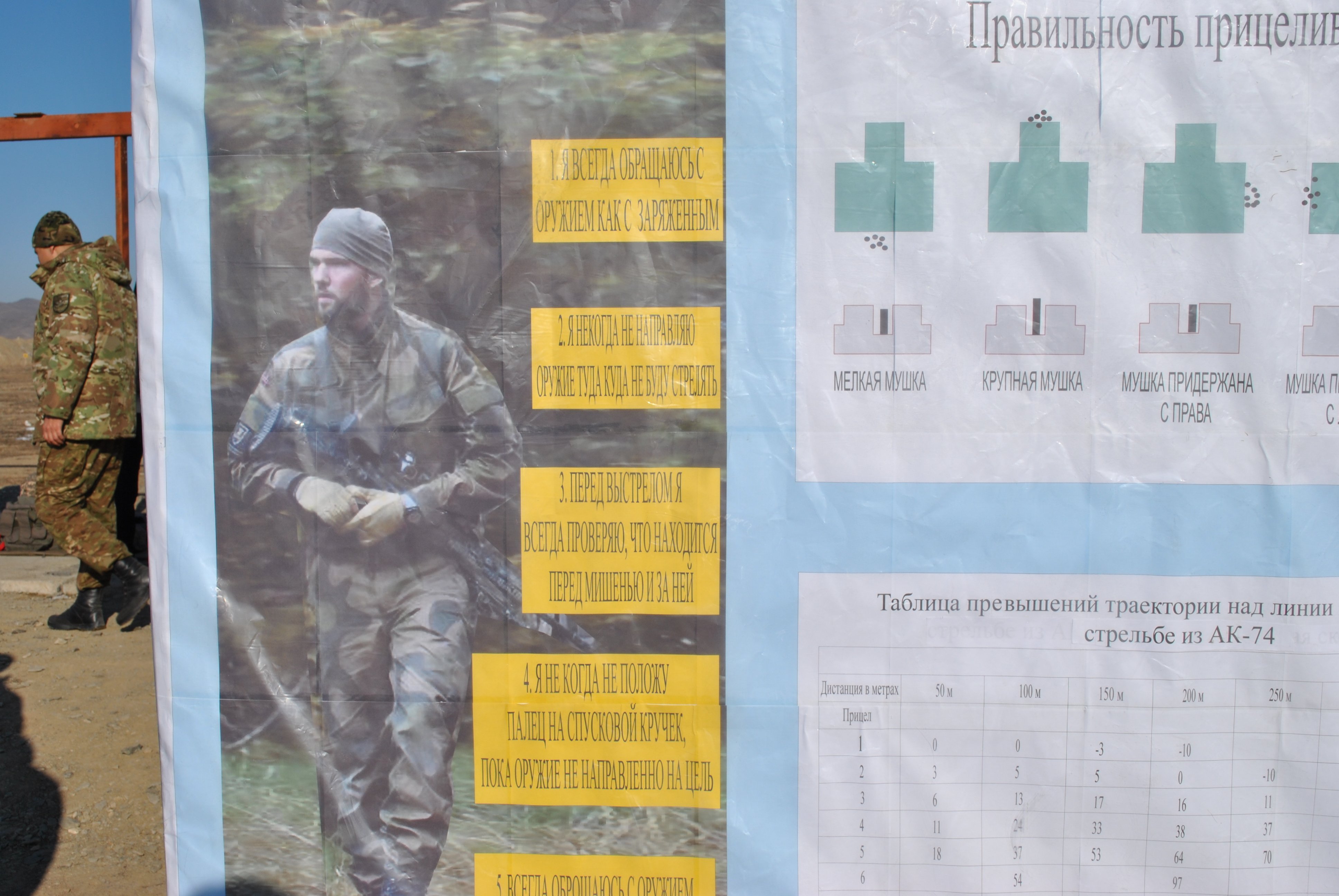
This inevitably raised questions about recent incidents involving firearms misuse in the army.
Lieutenant Damir Dosov was sentenced to 13 years in prison for shooting conscript soldier Marat Barkulov with a pistol.
Dosov claimed he didn't realize the pistol was loaded when he pulled the trigger. To understand the plausibility of this claim, journalists asked Sabit Urkimbaev, the ground forces training center commander, for insight.
Following a detailed safety briefing, journalists were invited to test their skills with AK-74 assault rifles.
Dressed in helmets and bulletproof vests, they were meticulously guided through the process: wait for the command, aim, fire, and report completion.
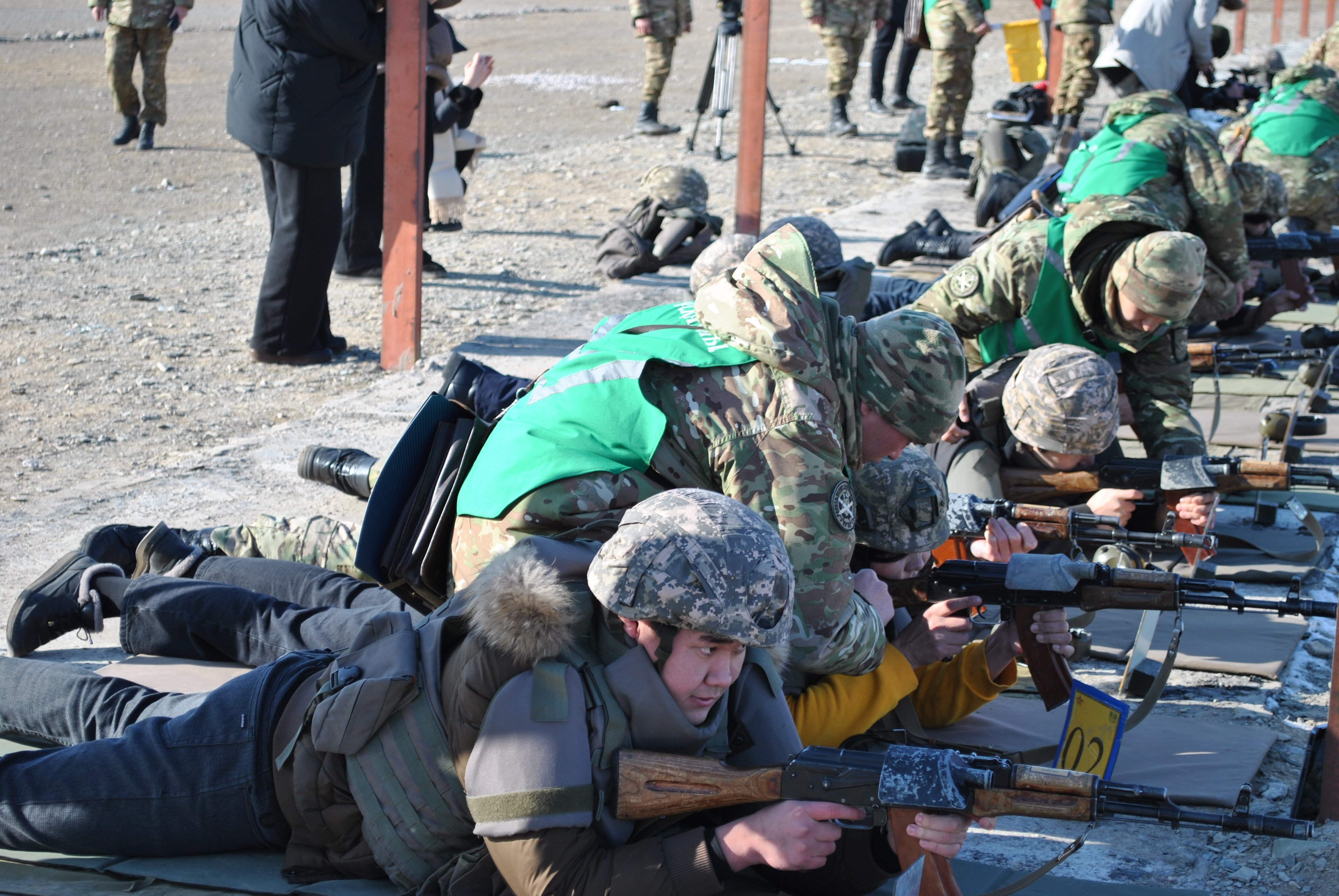
The sniper training demonstration stole the spotlight, though.
The snipers are armed with conventional Dragunov rifles (SVD); other types of foreign-made rifles are used in special forces. Instructors emphasized that a sniper’s success depends on accuracy and ability to blend into their surroundings.



Their mantra: “See a pine tree? Become a pine tree. See grass? Become grass.” They always recall that an enemy sniper is hunting, too.
From the Battlefield to the Kitchen
Military cooks now undergo specialized training at the ground forces’ training center, an upgrade from the previous system, where civilian contractors handled food services.
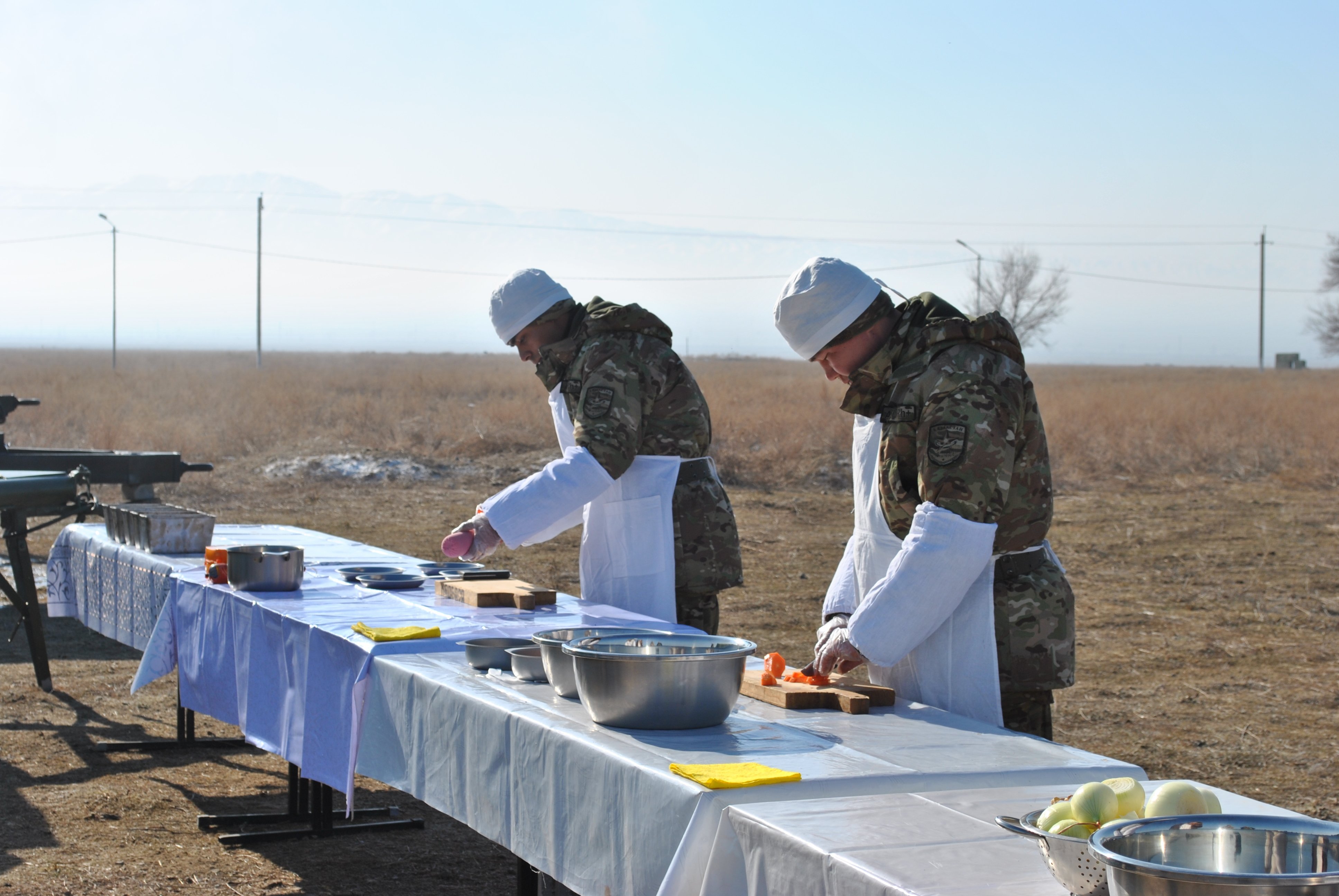
In wartime, cooks must be ready to fight, so they are trained in weapon handling and hand-to-hand combat. They must also be able to abandon their cooking post and engage the enemy if necessary.
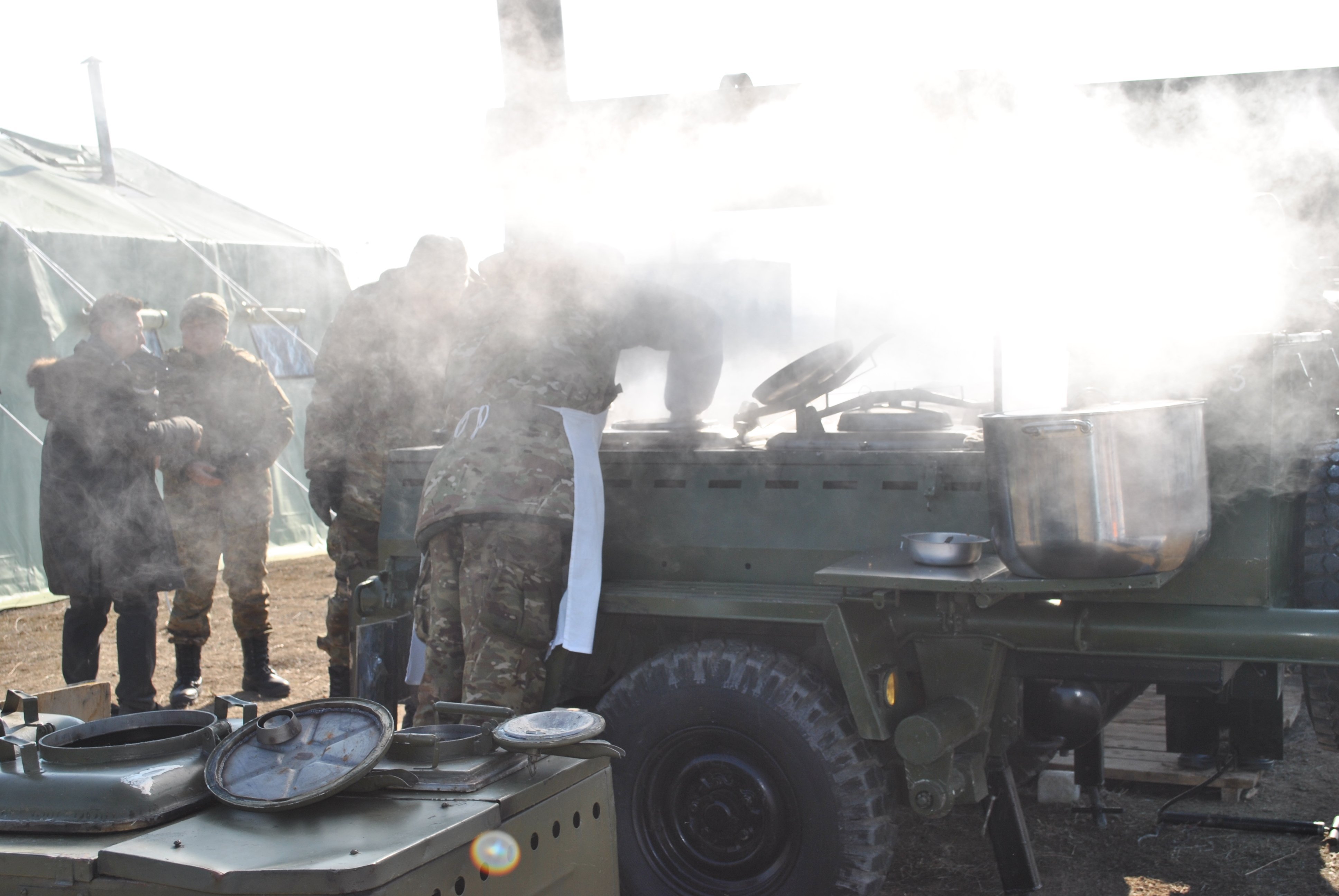
The same principle applies to military paramedics trained in Otar.
Their job requires a cool head—they must assess injuries, stop bleeding, bandage wounds, and evacuate comrades swiftly, all while potentially dealing with unconscious, shocked, or delirious soldiers.
In extreme cases, they’re advised to remove the wounded person’s weapon for safety.
Journalists traveled between training stations in locally assembled Arlan armored wheeled vehicles (AWV). Designed to withstand explosions and gunfire, these vehicles feature a V-shaped hull to disperse blast waves and a fully sealed interior for protection against chemical attacks.
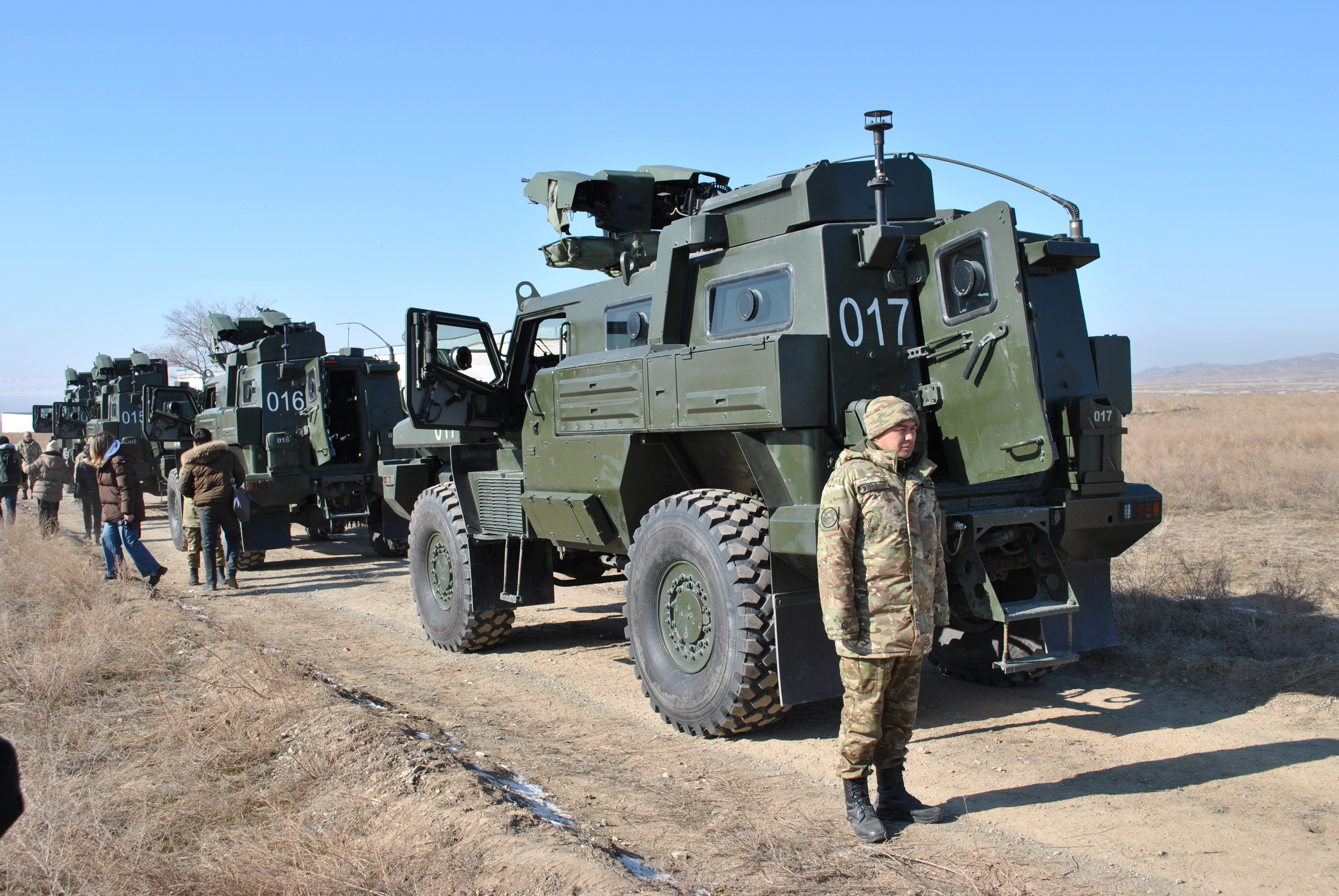
The grenade launcher training was another standout moment.
Attendees were strictly warned to stay at least 30 meters behind the SPG-9 “Kopyo” anti-tank grenade launcher, as its backblast could cause serious harm.
Even from a safe distance, the sheer force of the blast felt like the ground was momentarily yanked from beneath their feet.
After witnessing the training of riflemen, artillerymen, and tank crews, journalists had the chance to question Commander-in-Chief Kuchekbayev. As expected, the official narrative focused on the army’s strengths — high morale, disciplined soldiers, and the absence of hazing.
When pressed about suicides and abuse cases in the military, Kuchekbayev shifted the blame outside the army.
He claimed such incidents stem from personal and family issues, not the military environment.
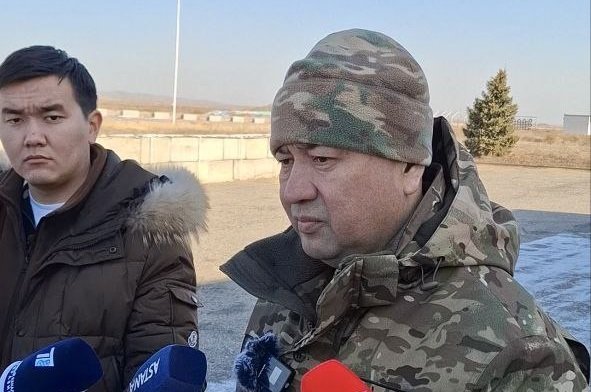
This stance starkly contrasts with the accounts of grieving parents who continue to seek justice for sons who died under suspicious circumstances, speaking of hazing, abuse, and even homicide.
When asked about these concerns, Kuchekbayev deferred to law enforcement:
We have heard official statements from law enforcement agencies. Pre-trial investigations are ongoing, and all necessary examinations are being conducted. Ultimately, the final assessment here is given by the law enforcement system and the courts. We must trust the official statements of the legal system.
As the tour wrapped up, the delegation was shown the soldiers' spotless barracks with neatly made beds.
Yet, one notable absence was security cameras.
When questioned, officers assured visitors that the cameras had been temporarily removed for upgrades and would be reinstalled soon.
Throughout the press tour, the Kazakh army’s problems were largely ignored in favor of highlighting achievements and progress. The event depicted what the army could be — disciplined, efficient, and hazing-free.
One can only hope that reality will one day match this ideal.
Original Author: Anastasia Prilepskaya
Latest news
- The War in Iran Opens a Window of Opportunity for Kazakhstan’s Oil Sector, Analysts Say
- Iran Conflict Escalates Beyond the Gulf: What Kazakh Experts Say About Risks for Central Asia and Kazakhstan
- Kazakhstan Prepares Possible Evacuation of Its Citizens From Iran
- LRT in Astana Is Reaching the Finish Line: The Launch Is Expected in the Coming Months
- Kazakhstan Ready to Help the UAE Amid Escalation in the Region
- Tokayev Discusses Middle East Escalation With Qatar’s Emir
- Airlines Ready to Bring Kazakhstanis Home From the Middle East
- Tokayev Sends Support Messages to Gulf Leaders Amid Regional Escalation
- Kazakhstan Bans Its Airlines From Flying Over Several Middle East Countries
- Astana Strengthens Security Measures Amid Escalation Around Iran
- Tokayev Meets U.S. Ambassador Stufft, Discusses Board of Peace Cooperation
- Mangystau Launches AI-Assisted School Monitoring to Prevent Teen Suicidal Behavior
- Kazakhstan to Supply UK With Critical Minerals
- AI Faculties for Educators to Open in Kazakhstan: What Other Changes Are Coming to the Education Sector
- There Are Medals — But Not Enough Ice: What’s Happening to Figure Skating in Kazakhstan
- Is Kazakhstan’s Nuclear Power Plant Project at Risk After New UK Sanctions? Rosatom Responds
- Prosecutor General’s Office Suspends Extradition of Navalny Ex-Staffer Detained in Almaty
- Former EBRD Executive Jürgen Rigterink Elected as New Independent Director on Bank RBK’s Board of Directors
- Kazakhstan Near Bottom of Retirement Comfort Ranking
- Kazakhstan to Open New International Flights Across Asia, the Middle East and Europe

